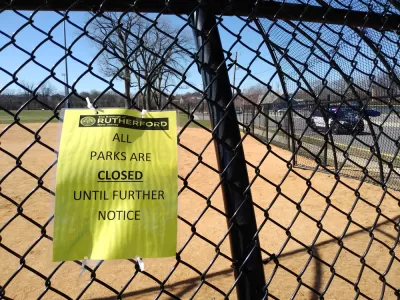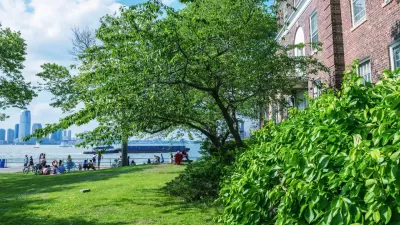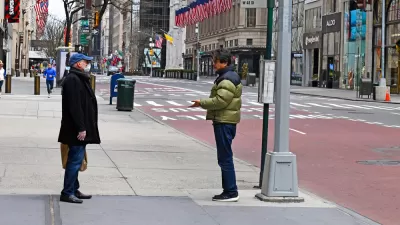Too many people have been seeking normalcy on parks and on trails. This isn’t a normal time.

Many of the shelter in place orders in effect around the country, and pressure from government officials to maintain “social distancing,” came with an escape hatch: people have generally been encouraged to continue hiking and walking outside for exercise and peace of mind.
That last vestige of normalcy was quickly overwhelmed by large numbers of residents in numerous cities taking to parks and open spaces, prompting closures of parks and trails in cities and counties, like Los Angeles city and county, the city of San Diego, and Sonoma County (also in California). Several parks in the San Francisco Bay Area also closed in response to crowded conditions over the weekend.
In New York City, the number of people in parks over the weekend provoked a tweet from New York Governor Andrew Cuomo that might have inadvertently fueled anti-density sentiment as the city braces for the worst infestation and death rates of the pandemic in the United States so far.
The story was the same in Minneapolis, where Miguel Otárola wrote to broadcast warnings from local officials about heavy traffic on local trails, putting too many people in close proximity.
Inga Saffron, pulitzer prize-winning architecture critic, also wrote an appeal for Philadelphia residents to “recalibrate our relationship with our beloved public spaces if we are going to survive this plague.”
Some advocates are calling for streets to be closed to cars due to the lack of open public space proximate to neighborhoods in many cities, an action already taken in Philadelphia on Martin Luther King Drive.
FULL STORY: In this plague, we must learn to play alone in our parks | Inga Saffron

Planetizen Federal Action Tracker
A weekly monitor of how Trump’s orders and actions are impacting planners and planning in America.

Maui's Vacation Rental Debate Turns Ugly
Verbal attacks, misinformation campaigns and fistfights plague a high-stakes debate to convert thousands of vacation rentals into long-term housing.

Restaurant Patios Were a Pandemic Win — Why Were They so Hard to Keep?
Social distancing requirements and changes in travel patterns prompted cities to pilot new uses for street and sidewalk space. Then it got complicated.

In California Battle of Housing vs. Environment, Housing Just Won
A new state law significantly limits the power of CEQA, an environmental review law that served as a powerful tool for blocking new development.

Boulder Eliminates Parking Minimums Citywide
Officials estimate the cost of building a single underground parking space at up to $100,000.

Orange County, Florida Adopts Largest US “Sprawl Repair” Code
The ‘Orange Code’ seeks to rectify decades of sprawl-inducing, car-oriented development.
Urban Design for Planners 1: Software Tools
This six-course series explores essential urban design concepts using open source software and equips planners with the tools they need to participate fully in the urban design process.
Planning for Universal Design
Learn the tools for implementing Universal Design in planning regulations.
Heyer Gruel & Associates PA
JM Goldson LLC
Custer County Colorado
City of Camden Redevelopment Agency
City of Astoria
Transportation Research & Education Center (TREC) at Portland State University
Jefferson Parish Government
Camden Redevelopment Agency
City of Claremont





























